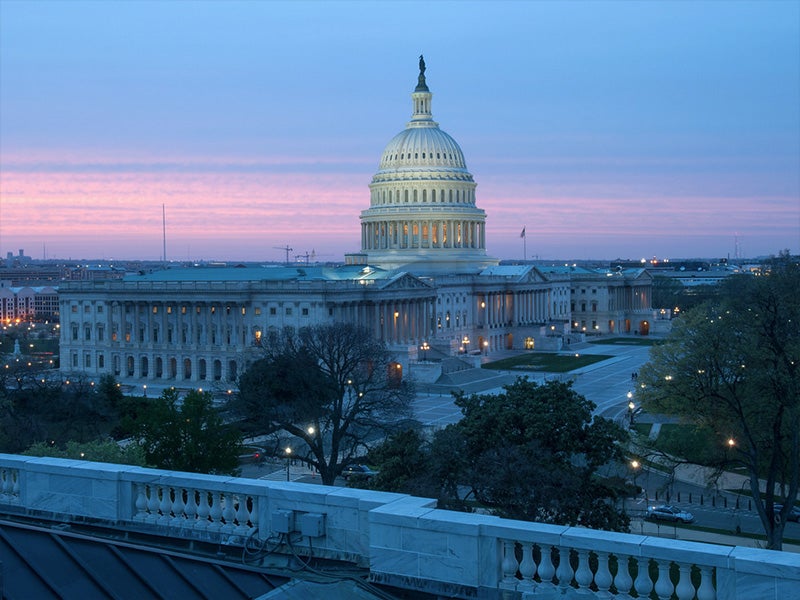When Lobbying is a Good Thing
Lobbying is the act of attempting to influence decisions made by officials in the government. There is bad lobbying and, as I learned, there is good.

This page was published 11 years ago. Find the latest on Earthjustice’s work.
Lobbying is the act of attempting to influence decisions made by officials in the government. It conjures up an image of a guy in a $5,000 suit slipping money into a senator’s pockets. It’s seemingly taboo to lobby, and as a public policy major I find my answer to the often-repeated question of “So, are you going to sell out and become a lobbyist when you graduate?” being “Absolutely not!”
But, as I learned during my time here, “lobbying” has a much-more layered definition.
At Earthjustice, the Policy and Legislation team (“PAL” for short), is made up of seasoned lobbyists, all of whom are committed and knowledgeable about environmental policy and the impact that litigation has in protecting our air, water and lands.
During a hot afternoon in July, I was invited to join an Earthjustice lobbyist and some local and regional activists who were in Washington to tell their representatives why they need federal coal ash regulations. Coal ash is the toxic byproduct produced by coal-fired power plants, filled with pollutants like arsenic, mercury, lead and selenium. It is often stored in unlined and unmonitored pits near these power plants, and at more than 200 sites across the country it has poisoned and polluted nearby waters.
I accompanied Judy Dasovich of Missouri. This horse-riding physician, who wore Chaco’s and a denim jacket to meet with the offices of her elected officials, Sen. Claire McCaskill and Rep. Emanuel Cleaver, was introduced as a Missourian concerned with coal ash disposal in her neighborhood. She discussed in detail her local government’s failure to handle a coal-fired power plant and her state representative’s efforts with that company to allow for a dangerous coal ash disposal site to be considered, even after it failed the initial site assessment.
Judy, like the rest of the citizens, is not a trained lobbyist; she was simply there to tell her story. “I don’t care about what is politically possible, I care about you doing what is right for the people of Missouri,” Judy repeated to both McCaskill’s and Cleaver’s staff.
The day culminated at the Environmental Protection Agency. At the meeting, EPA administrators and Earthjustice lobbyists listened as all 15 of the citizens stood up and told their stories. These citizens brought pictures and scientific evidence, but most importantly they brought their own experiences with coal ash to the agency.
A woman from North Carolina, with purple-streaked hair and tattoos up and down her arms and legs, looked EPA administrators in the eye and begged them for regulations that would protect future families from sharing her experience of doctor’s bills and sleepless nights with her two babies with developmental disorders.
Another mother from Pennsylvania explained how the only one of her three children with asthma was born in a town built on a coal ash dump. A third-generation rancher from Montana who owns and operates a 30,000-acre cattle ranch is fighting the PPL Colstrip Power Plant over poisoned water leaking onto his ranch. He is also the first “cowboy poet” to be awarded the National Heritage Award from the National Endowment for the Arts. A member of the Navajo tribe, left unprotected by New Mexico, pleaded with the agency to protect them against clouds of coal ash lingering over their land and poisoning their people.
It was refreshing to see another image of a lobbyist, folks who are meeting with their elected officials to influence change on behalf of the good for their community and the environment. They weren’t professional lobbyists, but they lobbied just the same. I know that the stereotypical lobbyist exists, throwing cash and promises to politicians in order to get their way, but at Earthjustice, the lobbyists are pushing for a better future for us all. Just as the earth needs a good lawyer, the earth also needs a good lobbyist.
Established in 1989, Earthjustice's Policy & Legislation team works with champions in Congress to craft legislation that supports and extends our legal gains.